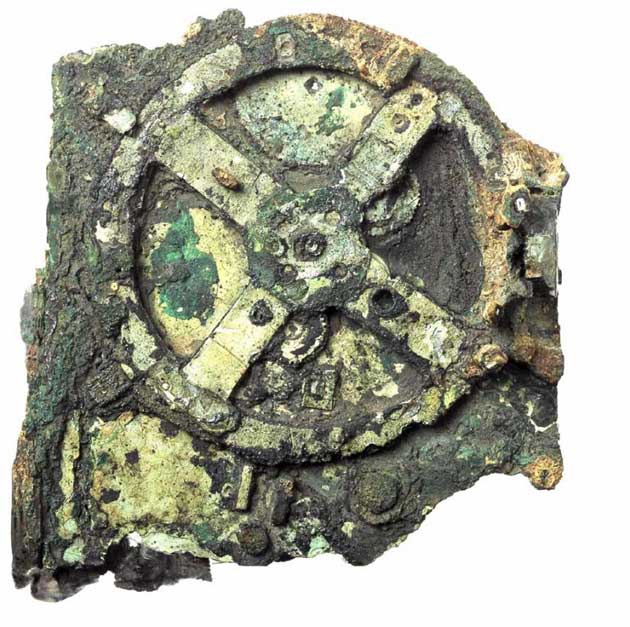Ancient device was used to predict Olympic dates

A mechanical instrument made from bronze and wood in ancient Greece was a calendar for predicting solar eclipses and the dates of the Olympic Games, scientists have discovered.
X-ray analysis of the device, known as the Antikythera Mechanism, has revealed that it marked the timing of sporting events around Greece – including at Olympia. It was made in the 2nd century BC. The device was found by sponge divers in 1900 off the island of Antikythera. They had found a Roman shipwreck dating to around the 1st century BC which had been carrying a hoard of Greek valuables when it sank.
The mechanism ran on a complicated set of dials and bronze gears and was decorated with elaborate but indiscernible inscriptions. It was heavily corroded and broken into 82 pieces so it was difficult to work out what it was supposed to do or how it worked.
However, using hospital scanning technology, scientists have found that it acted as both a calendar and as an astronomical instrument for calculating the relative positions of the Sun, the Moon and the visible planets.
"We knew this 2,100-year-old mechanism calculated complex cycles of mathematical astronomy. It surprised us to discover that it also showed the four-year cycle of ancient Greek games, including the Olympic Games," said Tony Freeth, one of the researchers, whose work is published in the journal Nature.
The first clues suggesting a link with the cycle of games was when the scientists discerned the word "nemea" on a subsidiary dial. This was the site of the Nemean Games, one of the prominent "crown" games of the Olympiad cycle.
"Other names followed, 'isthmia' for the games at Corinth, 'pythia' for the games at Delphi and finally the hard-to-read 'olympia' for the 'Olympic Games'," Dr Freeth said.
Join our commenting forum
Join thought-provoking conversations, follow other Independent readers and see their replies
Comments
Bookmark popover
Removed from bookmarks